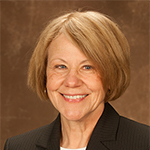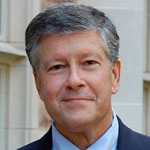
Washington University in St. Louis is re-establishing its sociology department after a nearly 25-year hiatus, Barbara A. Schaal, PhD, dean of the Faculty of Arts & Sciences, has announced.
“Sociology is an essential academic discipline that investigates important issues of human social structure and function — issues that are at the heart of many national and global challenges,” Schaal said.
“Re-establishing our sociology department will enhance our ability to educate our students and conduct world-class research in areas that are central to the critical social issues of our time.”
The decision to bring back the department comes nearly 25 years after the university announced in April 1989 that it would phase out its sociology department.

Efforts to bring sociology back to the university have been building momentum for several years as the result of discussions between university students, faculty and administrators.
Henry L. “Roddy” Roediger III, PhD, former chair of psychology and the James S. McDonnell Distinguished University Professor, has been heavily involved in those discussions in his role as dean of academic planning in Arts & Sciences.
“Washington University is simply missing an important discipline that deals with critical issues,” Roediger said. “When I was chair of psychology, students would sometimes approach me about my department offering courses on topics like criminology. However, I had to tell them that we had no faculty members capable of doing so. Criminology is a hugely important topic, but one that is usually covered in sociology departments. We have an obligation to both our students and our faculty to bring this important discipline back to campus. I am excited about the prospect of helping to build a great sociology department.”
An internationally recognized scholar of human memory function, Roediger is chair of a faculty advisory committee formed by Schaal to gauge interest in bringing sociology back to campus. The committee met several times, and in addition an open campus forum on the issue was held Dec. 2. In all venues, strong support was expressed for re-establishing the department.
In addition to criminology, sociology as a discipline brings critical tools and methodologies to the scientific study of social relationships, migration and immigration, demography, institutions, social justice and inequality.
In recent decades, Arts & Sciences has invested considerable resources in building world-class programs in psychology, economics, anthropology, political science and other areas. As these programs have evolved and expanded, the university has reached a point where building a strong sociology component is a logical next step.
The university commitment is a significant milestone, but Schaal cautions that building an academic department takes time. Recruiting top scholars can be a highly competitive and time-consuming process, one the university has no plans to rush. It will be looking to recruit top-ranked, innovative scholars from a variety of sociological subdisciplines.

“Reinvesting in sociology will boost several important existing research areas within Arts & Sciences and also create the opportunity for new cross-campus collaborations with medicine, social work, public health and a range of other disciplines across campus,” Schaal said.
In particular, according to Roediger, the faculty and administration of the top-rated Brown School strongly support reinstating sociology.
Schaal is now working with the advisory committee to select a chair for the new department.
Plans call for hiring at least two full-time senior faculty as soon as qualified candidates can be recruited. Other faculty from within the university and other nearby schools may be enlisted to form research and teaching affiliations with the department.
New courses in sociology could be offered as early as the fall 2014 semester.
During this period of transition, with the support of Chancellor Mark S. Wrighton and Provost Holden Thorp, PhD, the university has been exploring a variety of options to broaden campus discussions about sociological issues.
Last semester, Arts & Sciences hosted a campus colloquium on labor unions and racial issues led by Jake Rosenfeld, a prominent sociology researcher from the University of Washington. More of these sorts of events are expected as the university begins the process of bringing top sociology recruits to campus for lectures and symposia.
Members of the sociology advisory committee are:
Roddy Roediger, PhD, (chair), James S. McDonnell Distinguished University Professor in the Department of Psychology and dean of academic planning; Jean Allman, PhD, Jack Hexter Professor in the Humanities, director of the Center for Humanities and chair of the Department of History; John G. Baugh, PhD, the Margaret Bush Wilson Professor; John Bowen, PhD, Dunbar-Van Cleve Professor, Department of Anthropology; Carol Camp Yeakey, PhD, director, Program in Urban Studies, and director, Center on Urban Research & Public Policy; Marion Crain, JD, Wiley B. Rutledge Professor of Law, vice provost, and director, Center for the Interdisciplinary Study of Work and Social Capital; Mary Ann Dzuback, PhD, director, Women, Gender, and Sexuality Studies; Steve Fazzari, PhD, professor of economics and associate director of the Weidenbaum Center on the Economy, Government, and Public Policy; Robert A. Pollak, PhD, the Hernreich Distinguished Professor of Economics in Arts & Sciences and Olin Business School; Mark Rank, PhD, Herbert S. Hadley Professor of Social Welfare at the Brown School; Jim Spriggs, PhD, Sidney W. Souers Professor of Government and chair, Department of Political Science; and William F. Tate, PhD, the Edward Mallinckrodt Distinguished University Professor, chair of the Department of Education, incoming dean of the Graduate School of Arts & Sciences and incoming vice provost for Graduate Education.